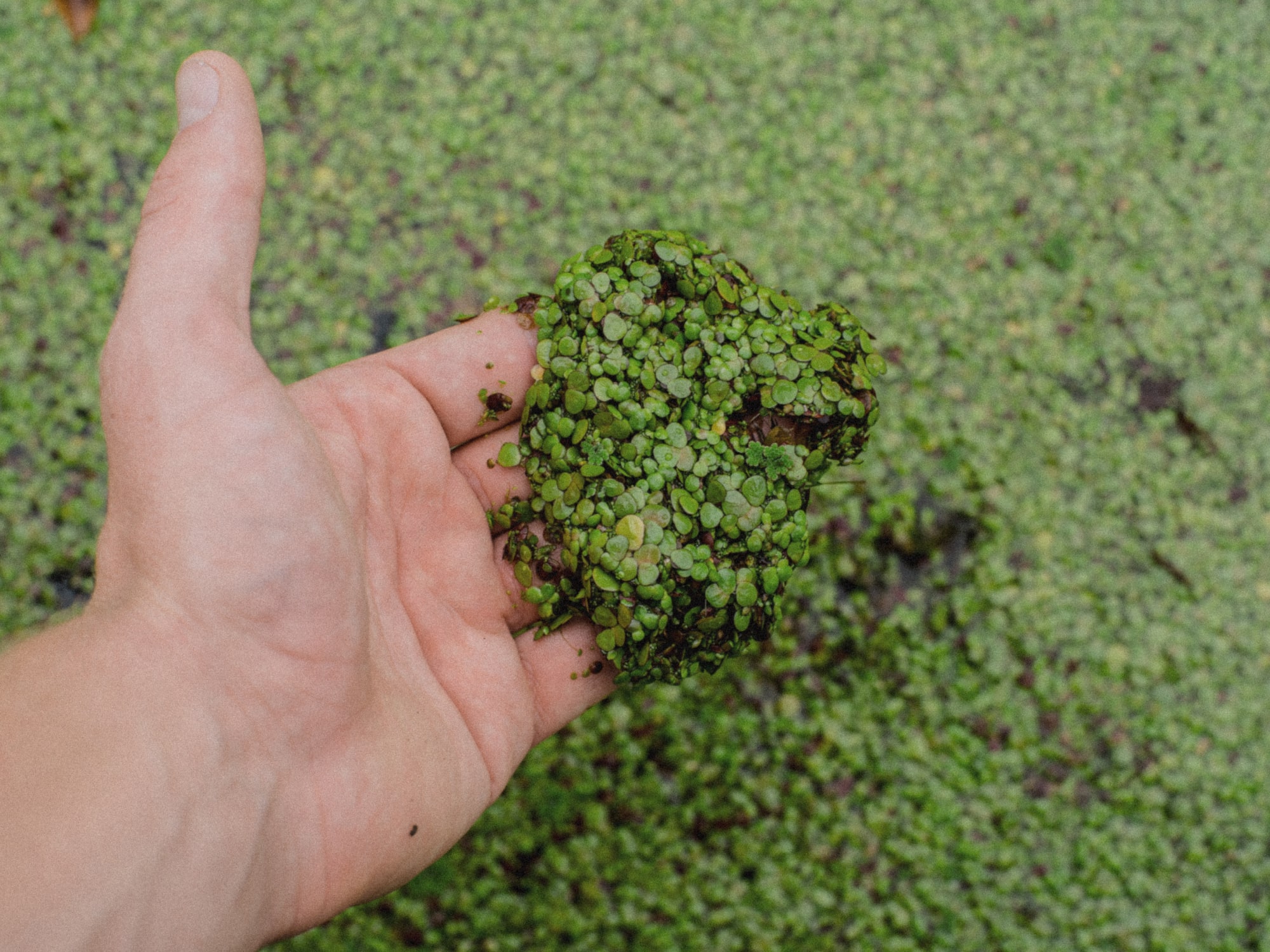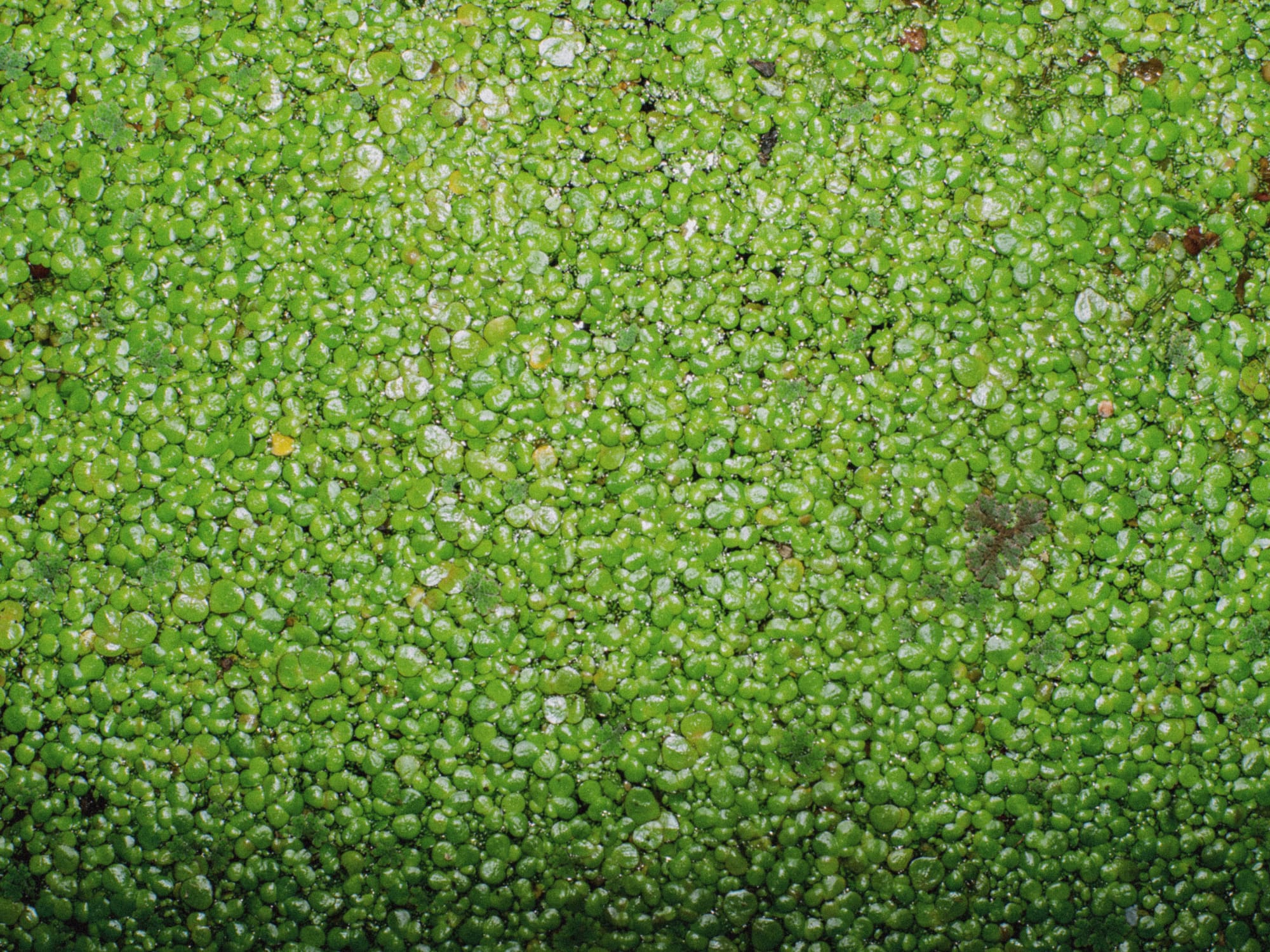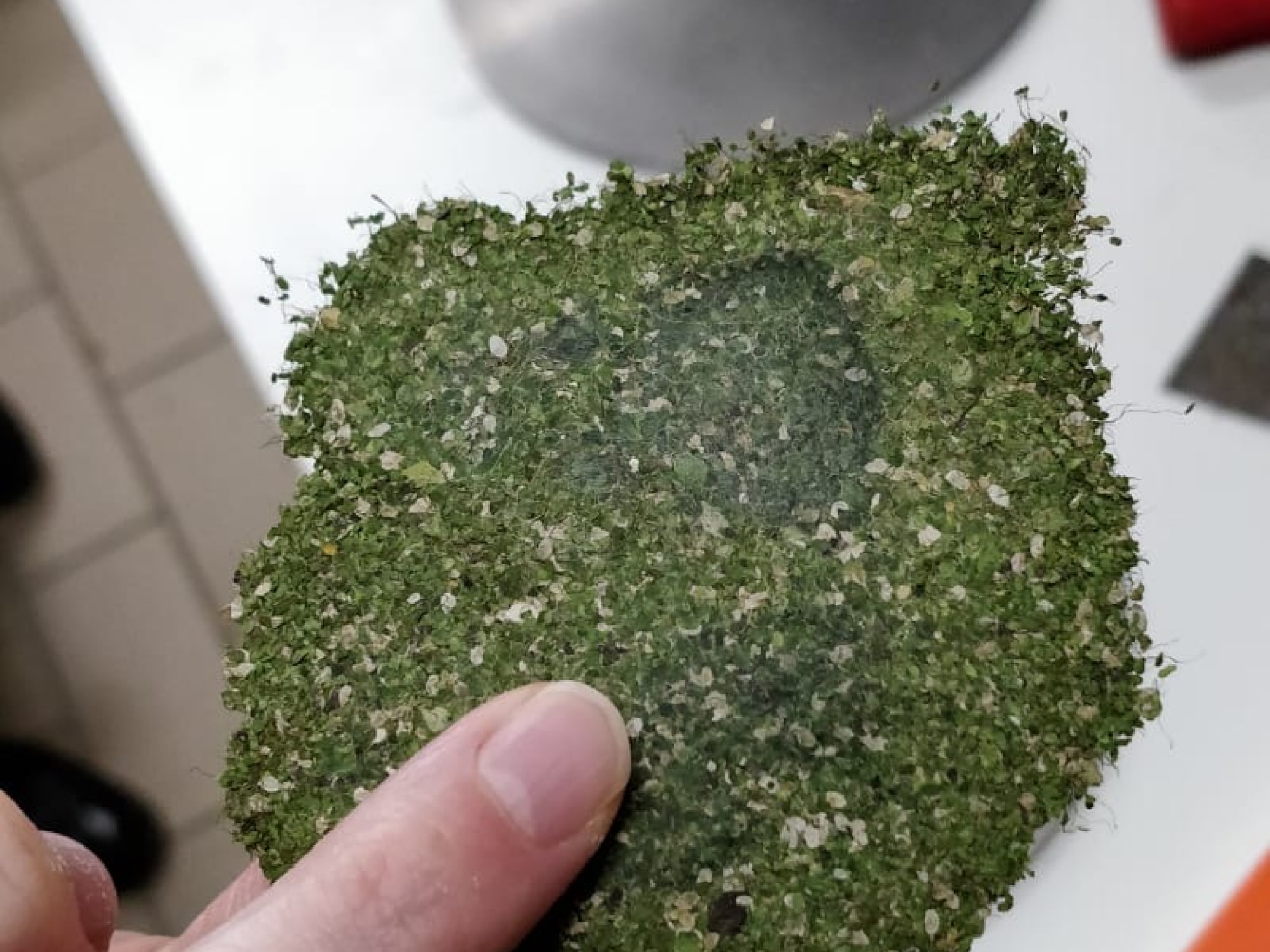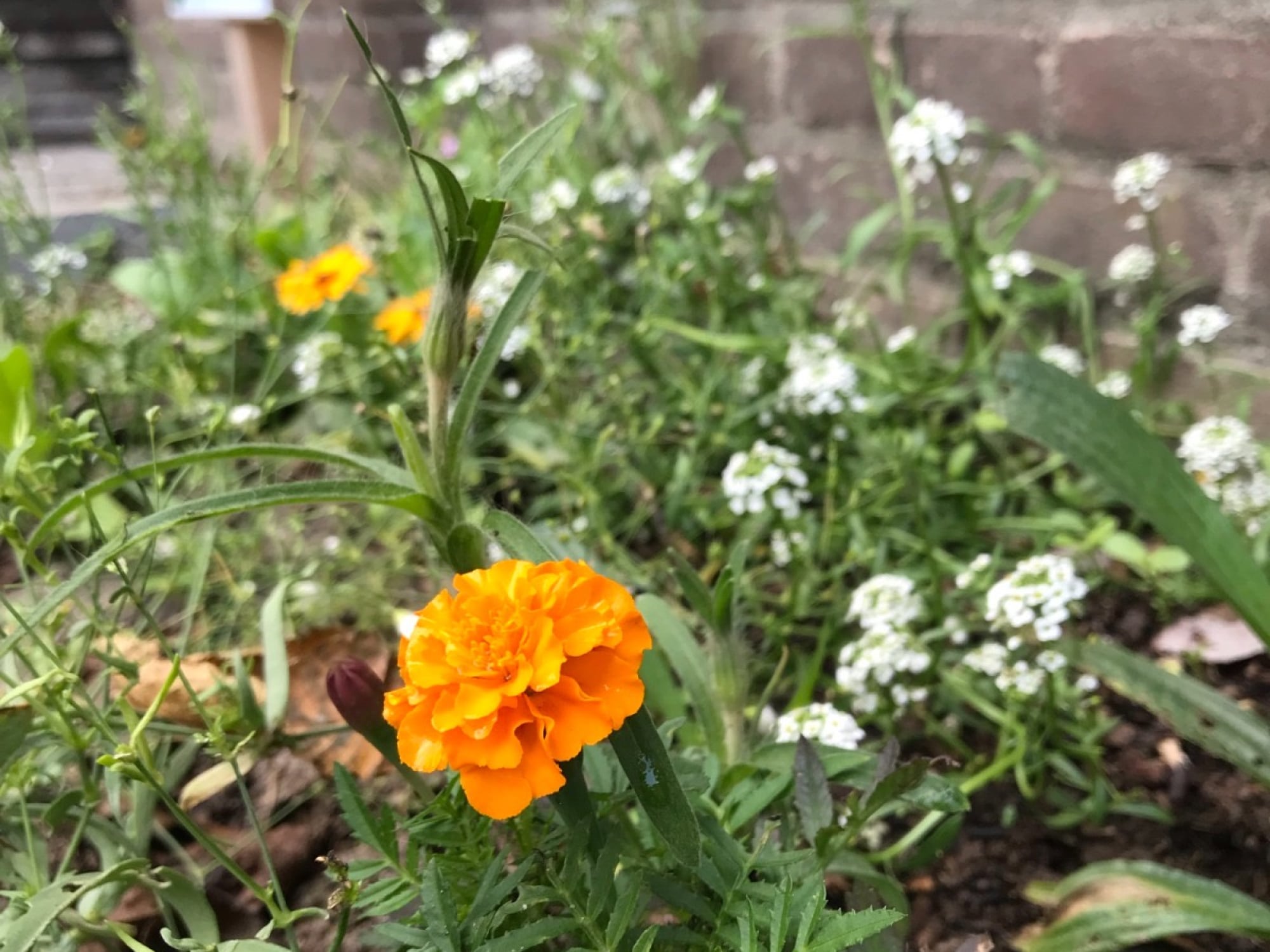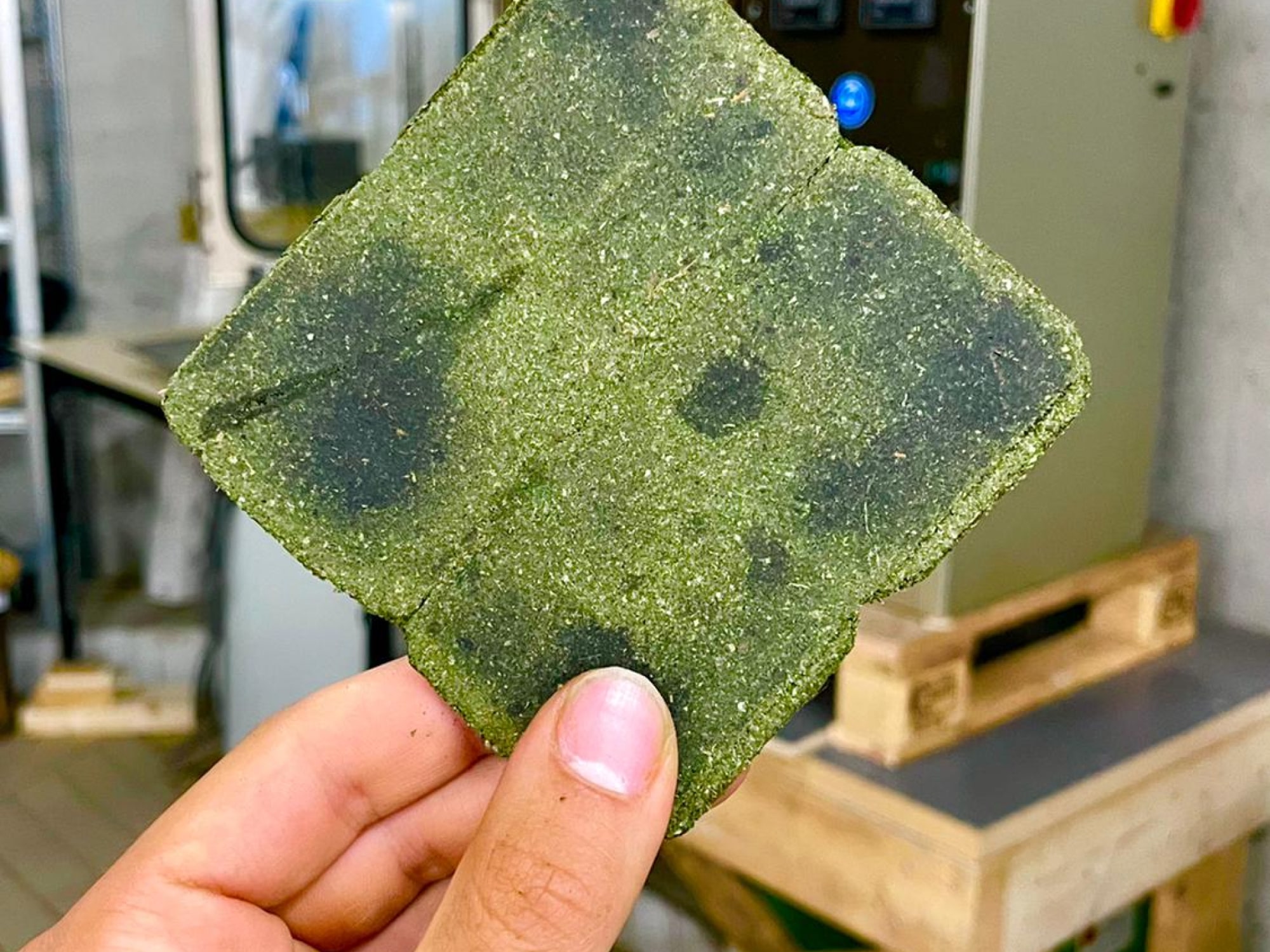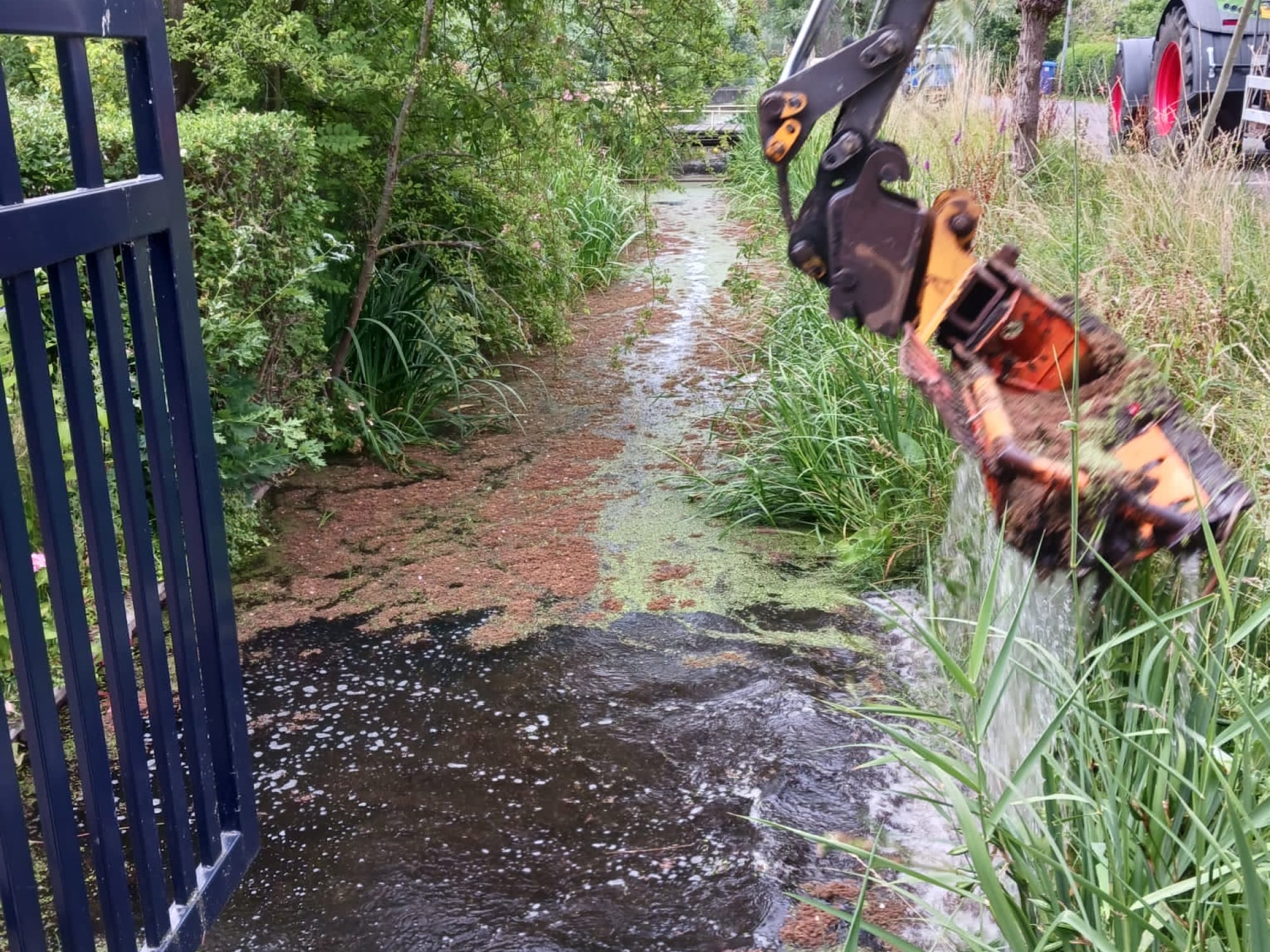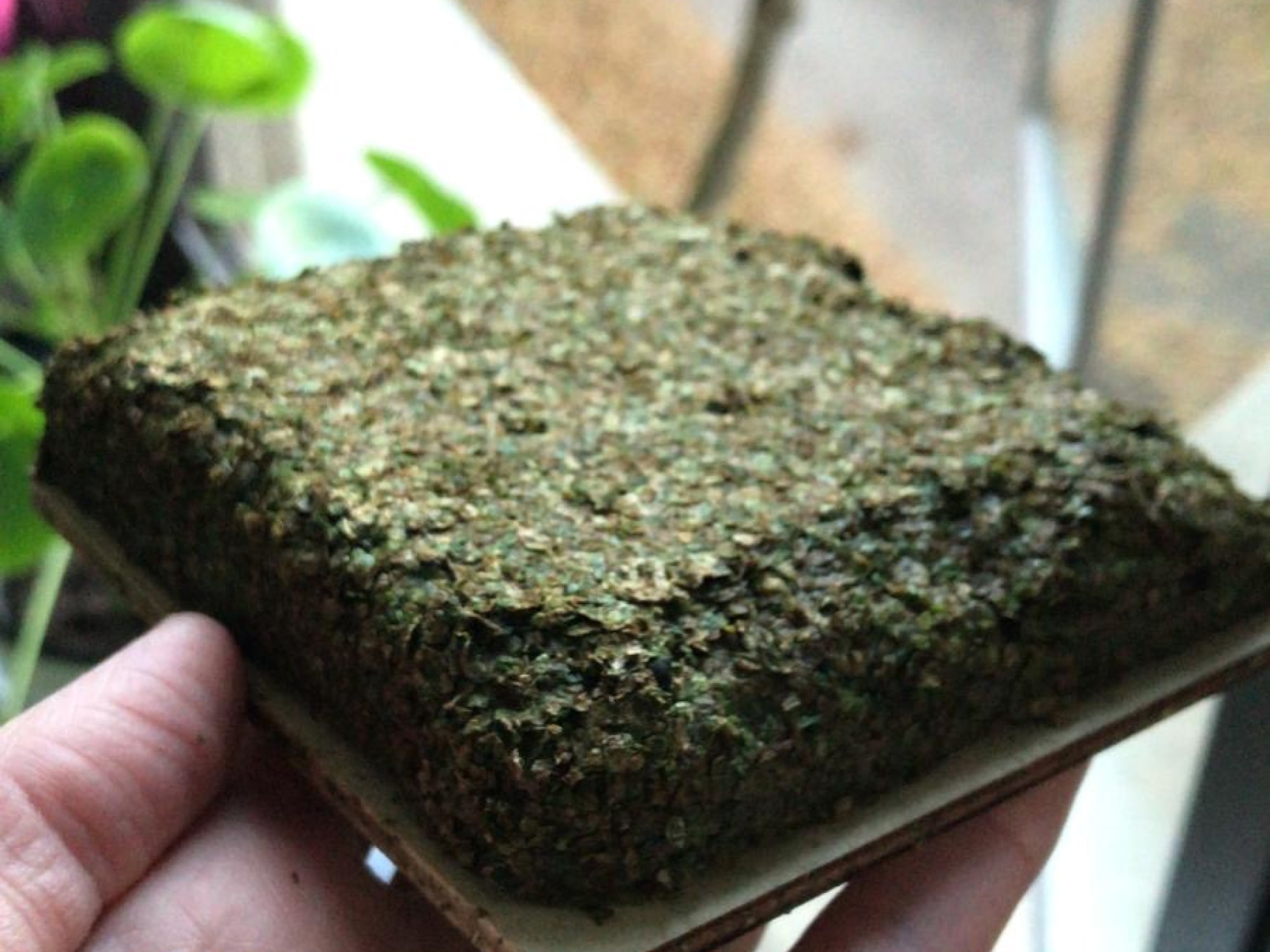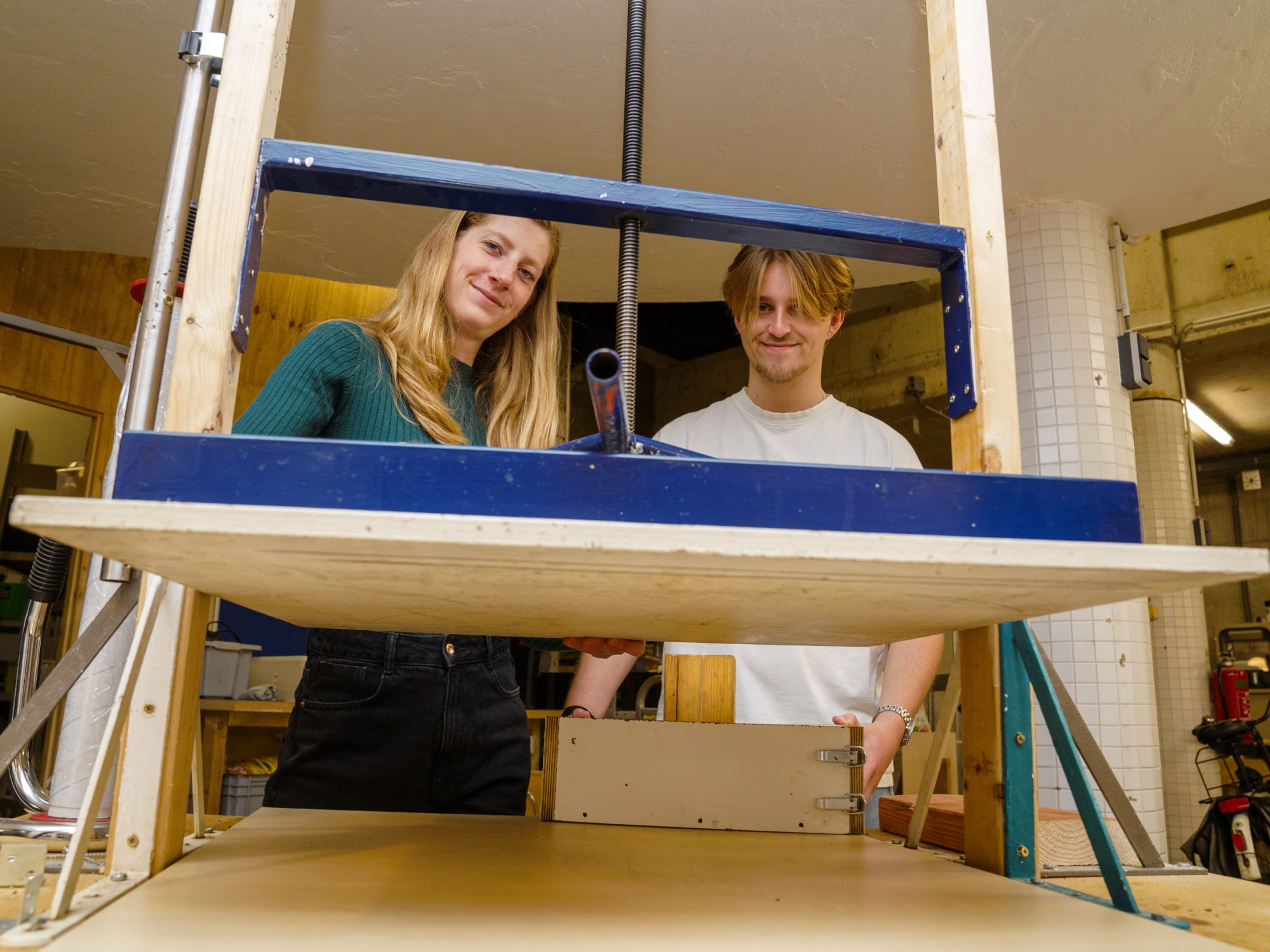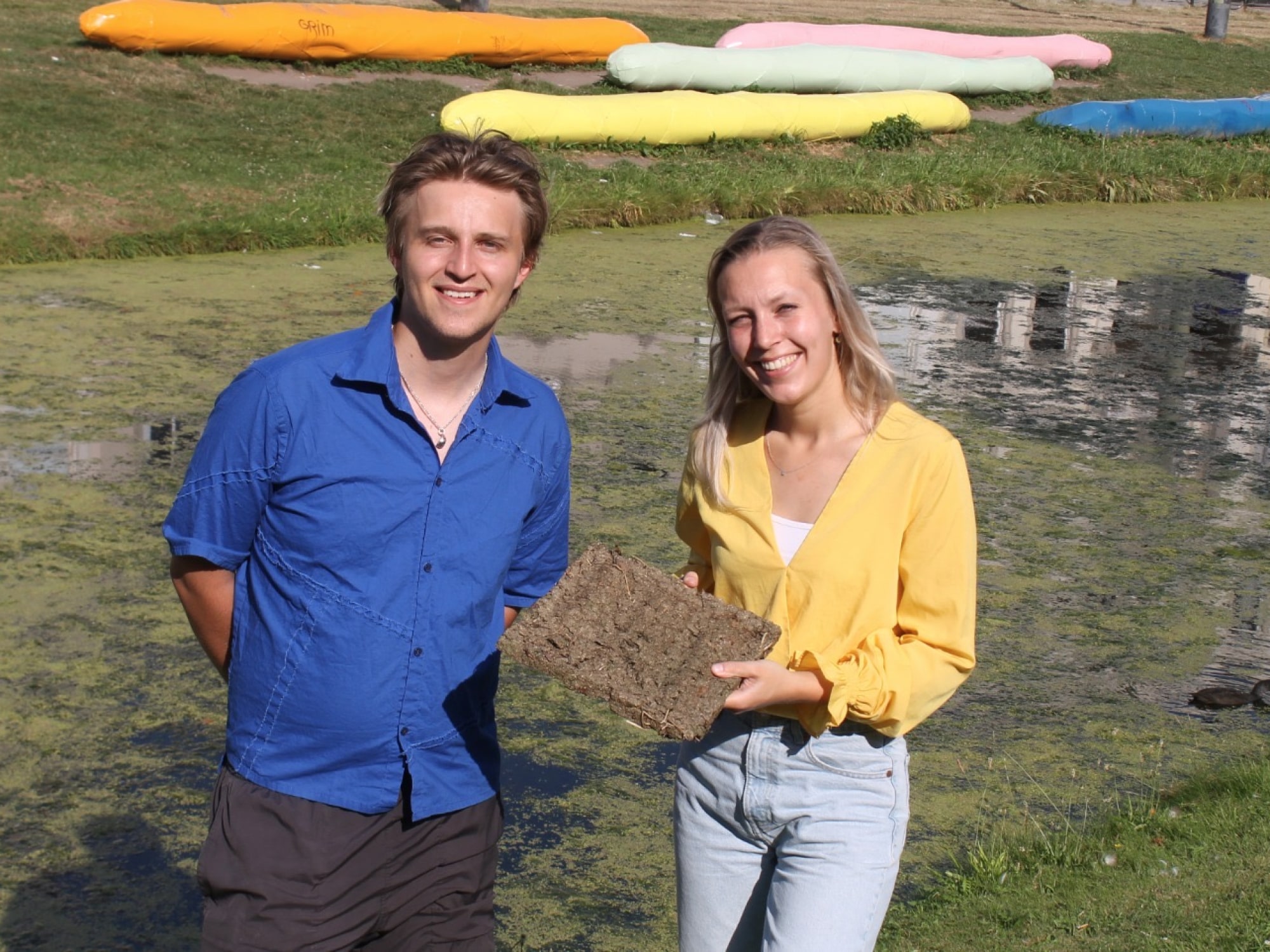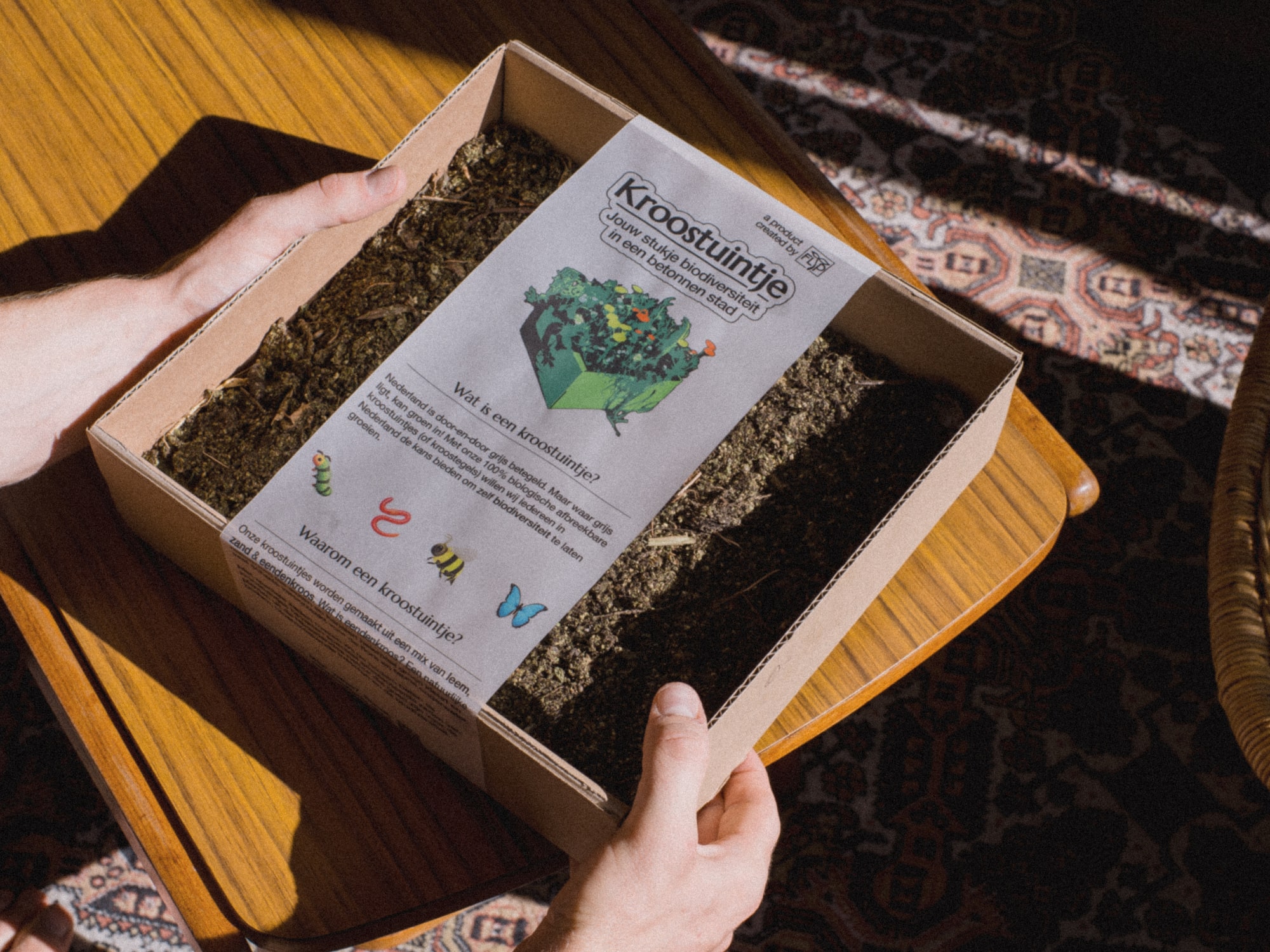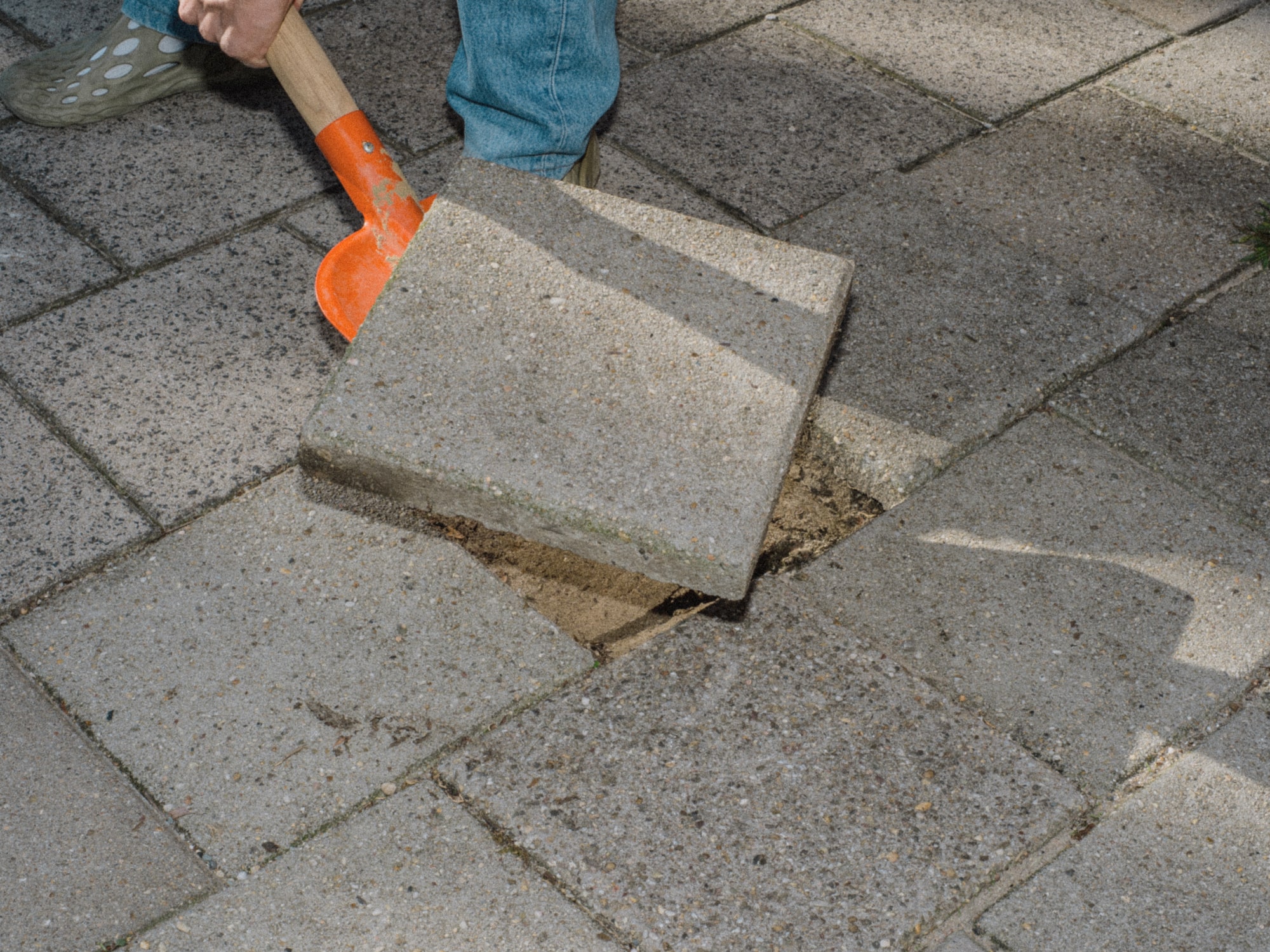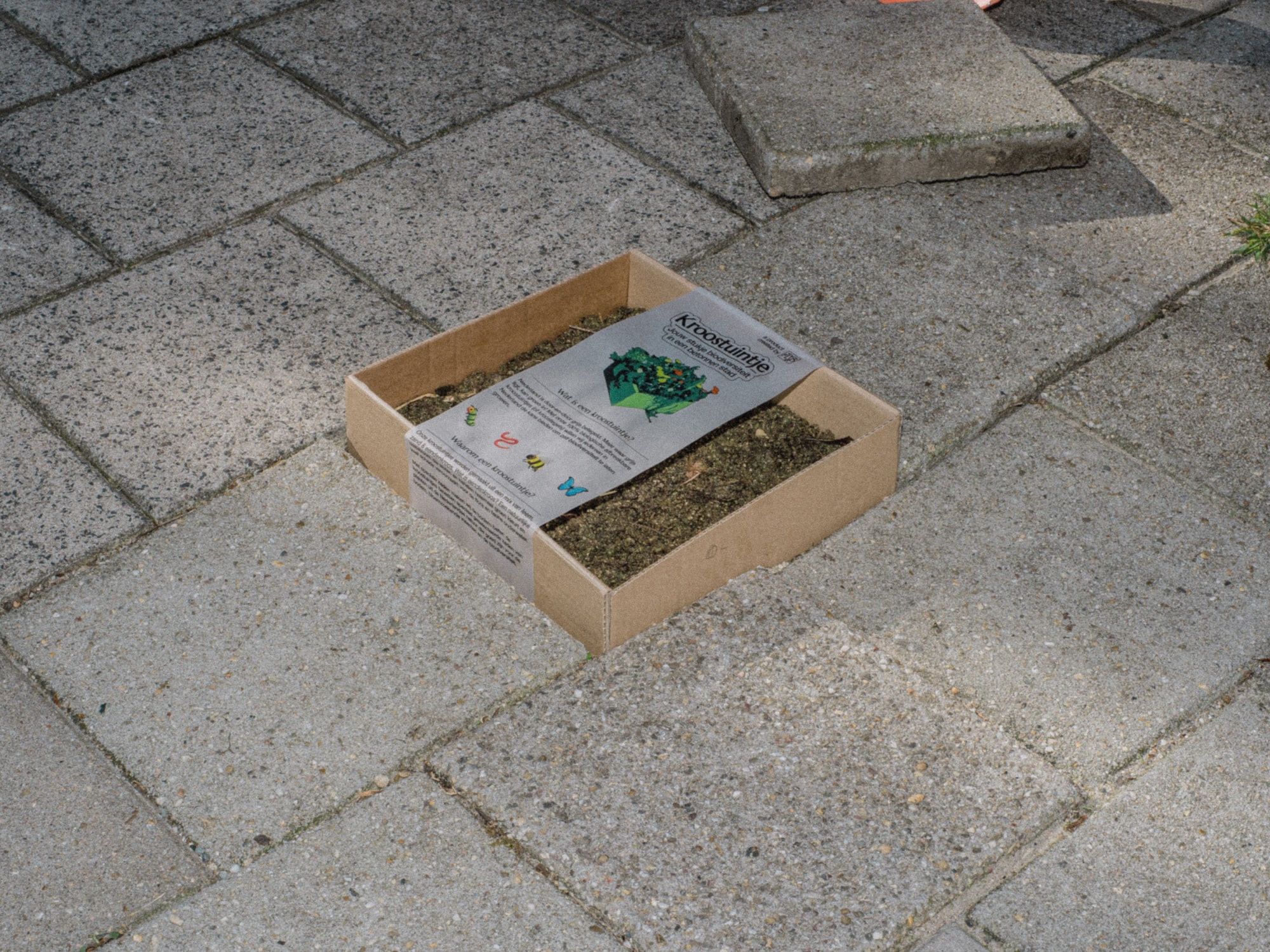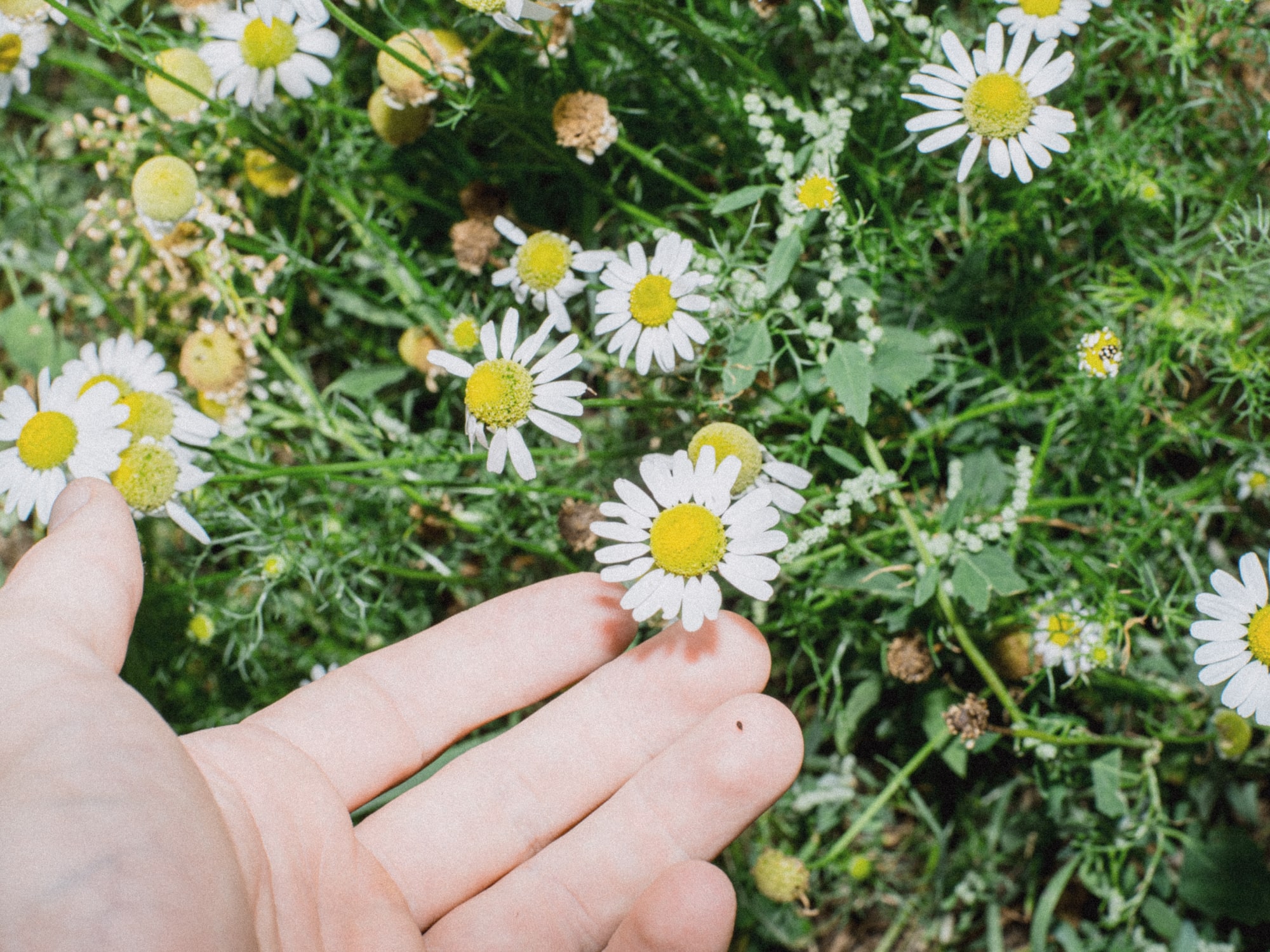Flip the City
Revolutionizing urban landscapes, Flip the City pioneers the transformation of duckweed from an overlooked wastestream into a vibrant, green asset: one that empowers citizens to actively and easily engage in circular impact, sustainable urban renewal and biodiversity education.
| ID: | #018.23 |
| Status: | Currently working on Market |
| Client: | Self-initiated |
| Year: | 2020 |
| Collab: | See Flip the City |
| Discover: | Link |

Challenge
Addressing the dual challenge of repurposing the excessive duckweed in Dutch waterways into a sustainable resource and designing an approachable solution for urban greening.
Our project initiated with an all-too-common issue in the Netherlands – the overabundance of duckweed in our waterways, often dismissed as an ecological nuisance. This situation, however, presented us with a unique opportunity. It was a chance to address a smaller part of a much larger environmental puzzle - the impacts of climate change.
Our aim evolved into something greater: transforming what was once considered 'waste' into a valuable ecological asset. In our approach, we set two key objectives: firstly, to establish a sustainable lifecycle for duckweed, ensuring its removal contributes positively to the environment rather than adding strain.
Secondly, our product design had to be more than just innovative; it needed to resonate with a broad audience – from policy makers and businesses to local communities and individual citizens. This approach culminated in the kroostegel (duckweed tile) - a planting tile made from duckweed that makes it easier to greenify cities.
Our aim evolved into something greater: transforming what was once considered 'waste' into a valuable ecological asset. In our approach, we set two key objectives: firstly, to establish a sustainable lifecycle for duckweed, ensuring its removal contributes positively to the environment rather than adding strain.
Secondly, our product design had to be more than just innovative; it needed to resonate with a broad audience – from policy makers and businesses to local communities and individual citizens. This approach culminated in the kroostegel (duckweed tile) - a planting tile made from duckweed that makes it easier to greenify cities.
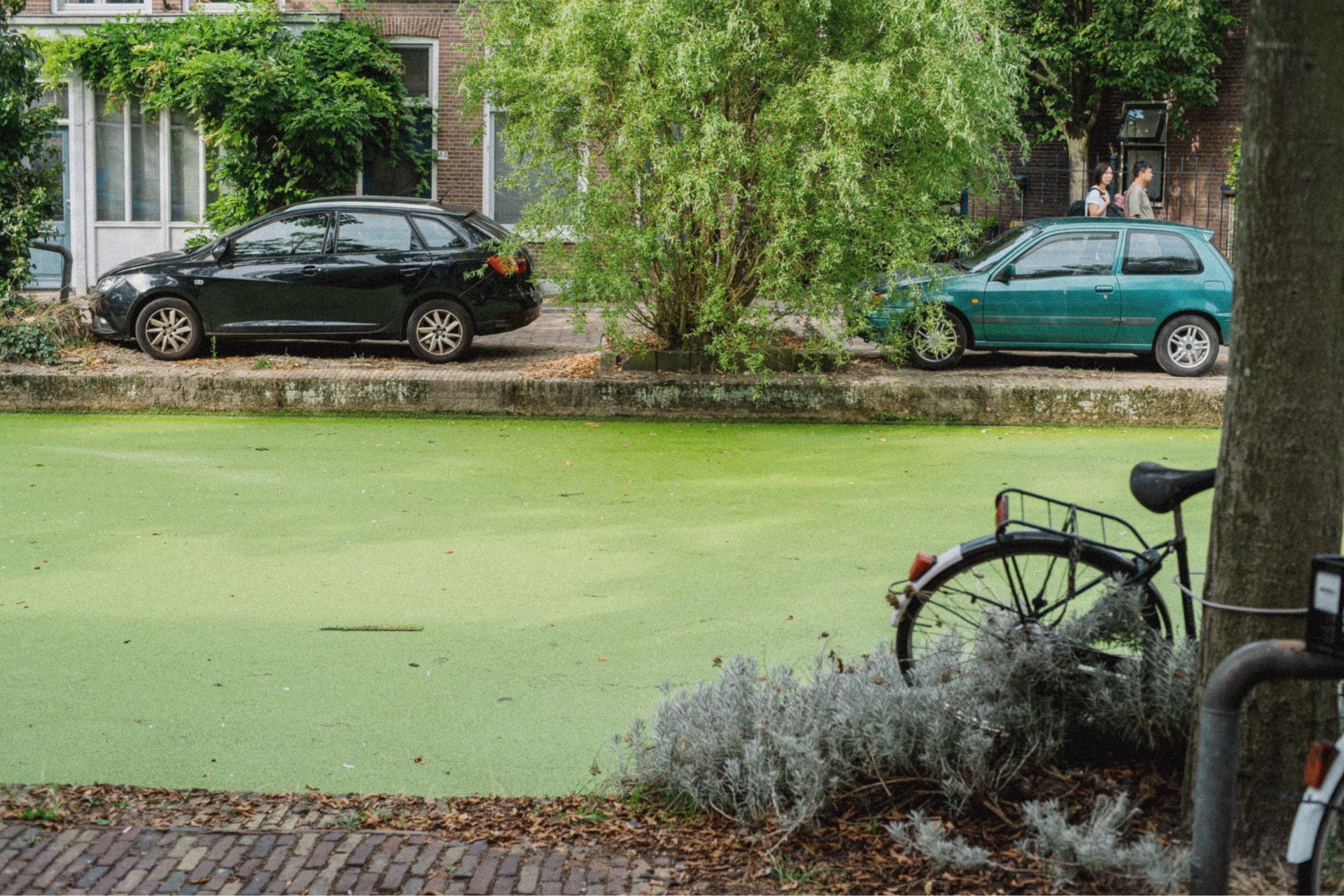
Approach
Our mantra in developing the "kroostegel" was clear: designing for circularity involves 25% product innovation and 75% social innovation.
Our approach to designing the "kroostegel" was twofold: meticulous research into duckweed's potential and crafting a socially responsible business model. On the product side, we delved deeply into studying duckweed, optimizing it as a growth medium. This involved selecting specific seed mixes tailored for local biodiversity, developing a "duckweed plastic" and refining the concentrations of duckweed as a growth medium to ensure effective plant growth. Equally crucial was the design of our biodegradable enclosure, with the exact dimensions as regular street tiles to make replacing concrete tiles as easy as possible.
Parallel to product development was our focus on 'business design'. Recognizing the importance of a holistic approach, we meticulously designed and built a new supply chain, establishing partnerships with local stakeholders. This wasn't just about creating a product; it was about building an entire ecosystem around our product - connecting municipalities, water boards, green contractors, and more, to create a sustainable, community-driven model for urban greening.
This comprehensive approach, balancing ecological product design with innovative social entrepreneurship, was fundamental in turning "kroostegel" from a concept into a reality.
Parallel to product development was our focus on 'business design'. Recognizing the importance of a holistic approach, we meticulously designed and built a new supply chain, establishing partnerships with local stakeholders. This wasn't just about creating a product; it was about building an entire ecosystem around our product - connecting municipalities, water boards, green contractors, and more, to create a sustainable, community-driven model for urban greening.
This comprehensive approach, balancing ecological product design with innovative social entrepreneurship, was fundamental in turning "kroostegel" from a concept into a reality.
Outcome & Impact
The kroostegel has become a "proven" solution in the urban greenifying movement
The "kroostegel" has not only been a product of innovation but a catalyst for change in urban sustainability. Our concept immediately won BlueCity's Circular Challenge in 2020, during which we developed the product, and which set the stage for our future successes. In 2021, we took a significant leap forward with our pilot project in Rotterdam Municipality, proving the practical viability of our duckweed tiles in urban settings.
Our impact extended to prominent platforms like the Dutch Design Week and Design Fest Gent, where we showcased our innovative solution, gaining widespread attention and acclaim. A particularly proud moment was our feature on Dutch national television's BinnesteBuiten, reaching over 550,000 viewers, significantly boosting our visibility and public engagement.
Recognition for our work continued with prestigious accolades such as the "25 under 25" award by MTSprout, celebrating our commitment and innovation in the field. In 2023, we achieved a milestone by being selected as one of the top 100 most innovative companies in the Netherlands, a testament to our growing influence and potential.
Today, "kroostegel" is more than a concept; it's a movement. Having sold thousands of tiles, we are scaling up to reach all 324 municipalities in the Netherlands, turning our vision of greener, more sustainable urban spaces into a nationwide reality. Flip the City is not just about introducing a novel product; it's about reshaping the way we envision and interact with our urban environments – making them greener, more inclusive, and resilient for future generations.
Our impact extended to prominent platforms like the Dutch Design Week and Design Fest Gent, where we showcased our innovative solution, gaining widespread attention and acclaim. A particularly proud moment was our feature on Dutch national television's BinnesteBuiten, reaching over 550,000 viewers, significantly boosting our visibility and public engagement.
Recognition for our work continued with prestigious accolades such as the "25 under 25" award by MTSprout, celebrating our commitment and innovation in the field. In 2023, we achieved a milestone by being selected as one of the top 100 most innovative companies in the Netherlands, a testament to our growing influence and potential.
Today, "kroostegel" is more than a concept; it's a movement. Having sold thousands of tiles, we are scaling up to reach all 324 municipalities in the Netherlands, turning our vision of greener, more sustainable urban spaces into a nationwide reality. Flip the City is not just about introducing a novel product; it's about reshaping the way we envision and interact with our urban environments – making them greener, more inclusive, and resilient for future generations.
Reflection
Growing with Flip the City: a journey of successful sustainable entrepreneurship and learning.
Leading the Flip the City since 2020 has been my most instructive and successful startup experience (also my most succesful startup to date 😉). This project taught me invaluable lessons in sustainable innovation, effective team leadership and entrepreneurship. We have bootstrapped Flip the City without investments from Day 1.
What has surprised me most since the inception of Flip is the positive reception of our customers. When we explain the concept, most people exclaim how we say in Dutch .. "deadly simple, but effective" the concept is. In my opinion, the biggest compliment a designer can get. I believe that Flip the City is a testament to how innovative solutions - that use nature for nature - can make a real difference, shaping my approach to future ventures.
What has surprised me most since the inception of Flip is the positive reception of our customers. When we explain the concept, most people exclaim how we say in Dutch .. "deadly simple, but effective" the concept is. In my opinion, the biggest compliment a designer can get. I believe that Flip the City is a testament to how innovative solutions - that use nature for nature - can make a real difference, shaping my approach to future ventures.
Contributions
💥 Business Model Design
From the get-go, I designed the business model of Flip the City such that with every purchase we realize a quantified impact.
♻️ Circular Product Design
I iterated the duckweed growth medium for the plants to be completely from Dutch local biomass. No added peat or fertilizer.
🕸️ Social Impact Entrepreneurship
We reinvest our proceeds to enhance and intensify the duckweed supply chain, further amplifying our environmental impact.
